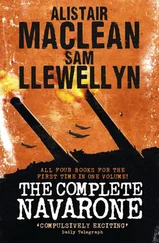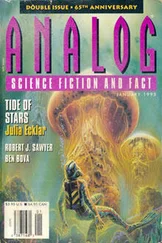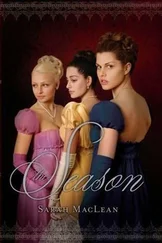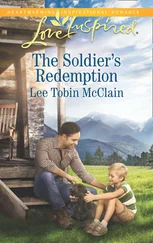‘Hamish, Mr Seaton has a favour he would ask of you. For myself, I hope that you might feel able to grant it him.’ Thus having said, she left us to our business.
MacLennan smiled now, and there was warmth in his austere face. ‘I am intrigued,’ he said. ‘My wife is not a woman who asks for favours, for herself or even others. Please tell me what it is you want.’
And so I told him of Sarah Forbes. He listened without interruption, once or twice nodding as I spoke. Occasionally, he would look up sharply, and I knew on what points I would be questioned when I had finished. When I had indeed finished, he got up and stood in front of the empty fireplace. The evening was now drawing on and the room was cold, but I had met many men of such frugal habits and self-denial, and it did not surprise me that Hamish MacLennan was one of them. Now he drew a deep breath and began slowly. ‘I think, in all, what you propose is a good thing, and I will do what is in my power to have it effected, but there are one or two things I would know first.’
And so he asked me all the questions I had known he would ask. He asked first of all, although he asserted he already believed he knew what the answer was, whether I was the father of Sarah Forbes’s baby. I told him I was not, and he lingered no longer on that matter. He asked next about the character of William Cargill, and of his wife, and of the soundness of their marriage and the nature of his household. I told him of William’s respectability, of his kindness, his reliability, his firmness of purpose and his fine mind. I told him of Elizabeth’s joyfulness, her loyalty and her zeal for hard work, and of the fondness she had evoked in his own good sister-in-law and in her husband, Gilbert Grant. I asked that Duncan might be called in, to give testimony as to the nature of his master’s household. It was allowed, and I watched in wonder as these two godly men, one of great learning and the other of little, conversed without dissemblance on the topic, and with mutual respect. The minister shook the servant’s hand and asked God’s blessing on him before dismissing him. He read again the letter from William that I had brought him.
‘And they will let her take the child, too. They are indeed good people, I think, and it will go better for the child that way, much better. Sarah is strong, and God willing, if she can be got away from under her uncle’s roof, she and her child will remain so. She will manage the two bairns well enough.’ He folded the letter. ‘It was a blessing on her, the day you met her on your way to visit your friend.’
‘And on me also,’ I said.
‘How so?’
‘Because I do not remember the last time I was called to be an instrument of good and answered that call.’
He looked at me for a long moment. ‘We are all sinners, but the Lord gives it to us to do good. Like Jonah, we often flee from His presence before we will submit to answering His call, and yet the Lord does not turn His face from us for ever.’ He smoothed the front cover of the small book of catechism, still in his hand. ‘What is taught to the bairns would be well remembered by us all.’
In little more than ten minutes, Hamish MacLennan, minister of King Edward in the Presbytery of Turriff, had written a testimonial of Sarah Forbes to the kirk session of St Nicholas in Aberdeen. He testified that she claimed her present condition to be the result of a vicious and scandalous assault at the hands of her former master in Banff, and that he, Hamish MacLennan, firmly believed this to be the truth of the matter. He asserted that she had fulfilled the penance and punishment laid upon her by the kirk session of Banff, and he enclosed with his own the letter from the kirk session of Banff to that effect. He petitioned that the session of St Nicholas and magistrates of Aberdeen might raise no objection to the employment of Sarah Forbes by Mr William Cargill, lawyer in Aberdeen, as a servant in his home.
He did not seal the letter but took it open in his hand and bade me, Duncan and his wife accompany him to the croft of Sarah Forbes’s uncle. The minister’s wife refused a ride on the cart that Duncan brought now ready for the journey away from King Edward, and strode purposefully at her husband’s side. It was not long before worn footpaths gave way to rough ground, and eventually, a miserable effort at cultivation. We reached the mean dwelling at the outer edge of the parish which, I quickly understood, was all the home Sarah Forbes knew.
A dirty face, a woman’s, looked out at what passed for a window at the approaching party and hastily withdrew, pulling fast the flimsy wooden shutter. A man, small and gaunt with roving, distrustful eyes, appeared in the doorway. He offered no greeting but waited, shifting uneasily until the minister was within ten feet of the house.
‘I have done nothing, Mr MacLennan, whatever William West will tell you. I was too ill to be at the kirk yesterday in time of sermon. I could scarce stand.’
‘Nothing? Your drunken roar and brawling were heard at the manse itself on the eve of the Sabbath. But that is a matter for the session; I am here concerning your wife’s niece.’
The man yelled for the aunt, uttering harsh words about the girl. The minister’s wife favoured him with a look of scathing contempt, then turned, more gently, to the woman who had now appeared at the door. ‘Where is your niece, Anna?’
The woman came forward, past her husband, pleading. ‘She is not a bad girl, Mistress Youngson. Please, she has not gone beyond our toft in four days. She feared to go to the kirk yesterday for the shame …’ But the woman was interrupted as Sarah Forbes emerged behind her. To my confusion, I felt my heart beat faster at the sight of her. Her face had grown paler in the last few days, and there were circles of darkness beneath her eyes, but there was something in those eyes still that spoke to me. She appeared somewhat startled at seeing me, but recovered herself well enough and addressed herself to the minister. ‘I am here, Mr MacLennan. Please tell me your business.’
And he did. He told her of William Cargill and his wife Elizabeth, of their need for a servant and their coming need for a nurse. She listened to all and then looked enquiringly at me.
‘William Cargill is my friend,’ I said. ‘I have known him many years. He is a good and kind man. His wife was kitchen maid in the schoolhouse of Banff. She will be a good mistress.’ I turned to Duncan at this point and he nodded his assent. ‘And they will take the child in also. It will be a good home for you both. Will you go?’
‘I will,’ she said.
It did not take five minutes for Sarah Forbes to gather her belongings – the same bundle she had carried from Banff, only the precious shawl now added to it. Her aunt gave her hand a squeeze as she passed through that doorway for the last time, and Sarah bent a little to kiss the cheek of her dead mother’s sister. While Duncan steadied the pony, I helped Sarah Forbes up onto the cart. William’s servant looked at me suspiciously, but said nothing. Some mischief must have been in me, for just before I mounted my own horse, I whispered in his ear, ‘The bairn is not mine, you know.’
He continued to busy himself about the bridle. ‘Aye, well, it could have done worse, I dare say.’
Before she turned towards the road that would take her away from here for good, Sarah Forbes looked at me and her lips opened to mouth a silent ‘Thank you.’ The word echoed through the breeze and carried me the six miles home, to Banff.
I could feel the nearness of the sea long before I saw it, but there was something else in the air of the falling dusk too. There was fear. As I headed the brae at Doune Hill and started to descend down by the Gellymill, I saw a thick pall of smoke rising from the heart of Banff itself. I could hear nothing, nothing but the sound of God’s retiring creation around me, but the wind was changing, and soon it would bring the smell of that smoke into my very nostrils.
Читать дальше












